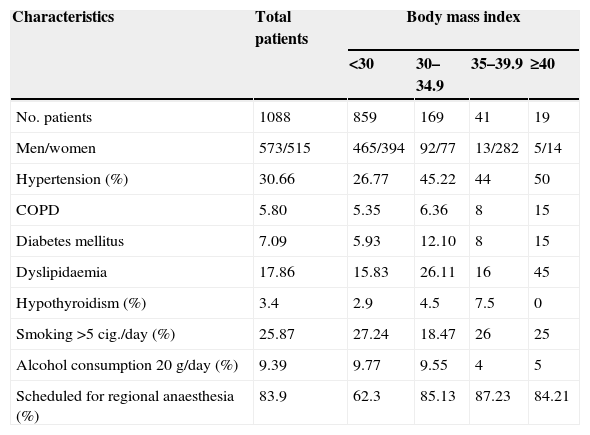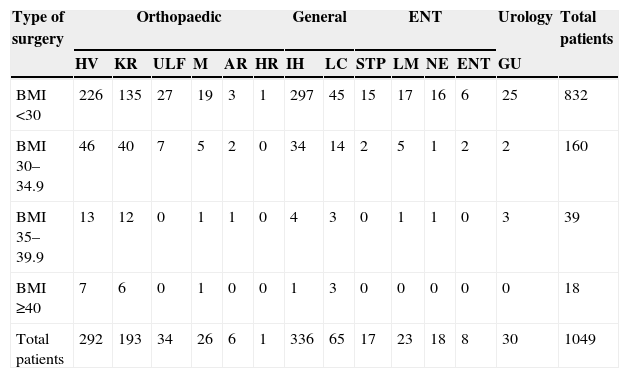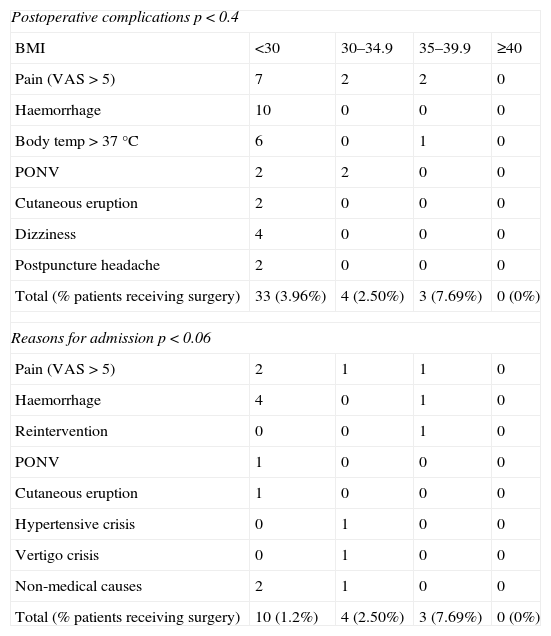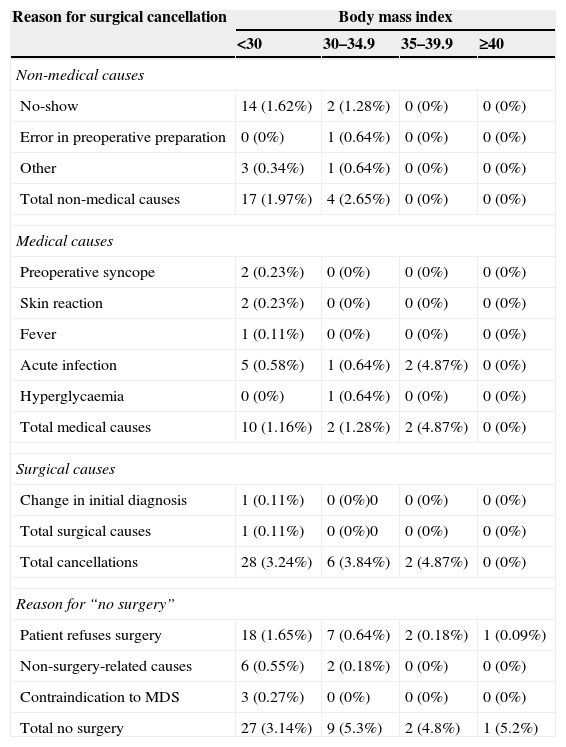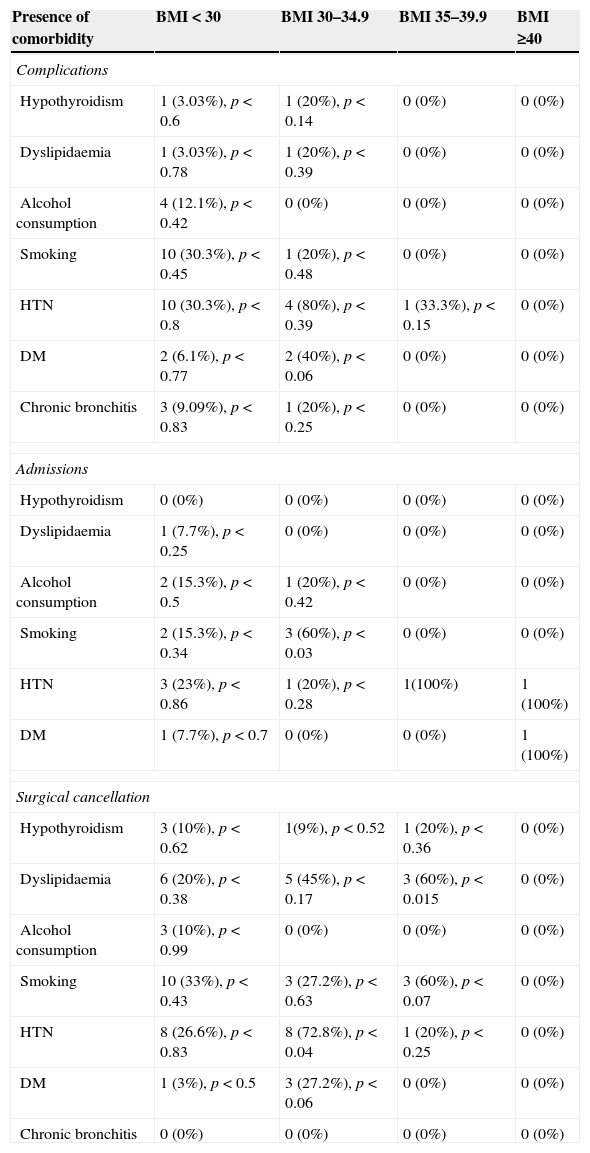To determine the incidence of outcomes, unanticipated admissions and cancellations in patients operated in an Ambulatory surgery unit, and to establish the relationships with their body mass index (BMI).
Subjects and methodsAn observational descriptive prospective study was conducted in the Ambulatory surgery unit of the University Hospital Virgen del Rocío of Seville, on ASA I or II adult patients proposed for day case surgery with loco-regional or general anaesthesia. A cohort of 1088 patients was classified according to their body mass index into four groups: no obesity (BMI<30), obesity i (BMI 30–34.9), obesity ii (BMI 35–39.9), and morbid obesity iii (BMI 40–49.9). Postoperative outcomes (48h), inpatient admissions, and cancellations were calculated.
ResultsThe obesity ii (BMI 35–39.9) group showed a higher incidence of postoperative complications (7.69%), unplanned admissions (7.69%), and surgical cancellations (4.87%), doubling, at least, the incidence of adverse events of the other study groups, even when no significant difference was found. Outcomes were similar in all study groups.
ConclusionsThe results of this study suggest that moderate and severe obesity should be a risk factor for postoperative complications, unplanned admissions, and cancellations in outpatient surgery. Adequate patient selection and preoperative evaluation, as well as strategies for the prevention and control of the most frequents complications in obese patients are the key factors for their integration in major ambulatory surgery programmes.
Registrar la incidencia de complicaciones postoperatorias, ingresos inesperados y suspensiones quirúrgicas en pacientes intervenidos en una Unidad de Cirugía mayor ambulatoria estableciendo su relación con los índices de masa corporal (IMC) de los mismos.
Material y métodosSe realizó un trabajo observacional descriptivo prospectivo en la Unidad de Cirugía mayor ambulatoria del Hospital Universitario Virgen del Rocío en Sevilla.
Se incluyó a todos los pacientes adultos ASA I o II propuestos para intervención quirúrgica en régimen de cirugía mayor ambulatoria que precisaban anestesia general o locorregional, con o sin sedación. Se seleccionó a 1.088 pacientes que se clasificaron según su IMC en 4 grupos: no obesidad (IMC<30), obesidad tipo i (IMC 30-34,9), obesidad tipo ii (IMC 35-39,9) y obesidad tipo iii mórbida (IMC 40-49,9). se analizaron las complicaciones en las 48h posteriores a la intervención, los ingresos inesperados y las suspensiones quirúrgicas en cada grupo de estudio.
ResultadosEl grupo obesidad tipo ii (IMC 35-39,9) registró la mayor incidencia de complicaciones postoperatorias (7,69%), ingresos (7,69%) y suspensiones quirúrgicas (4,87%), duplicando en el mejor de los casos el registro de estos eventos en el resto de grupos, aunque no se encontró asociación estadísticamente significativa entre la incidencia de estas variables y el grupo de estudio. El tipo de eventos registrados fue similar en todos los grupos de estudio.
ConclusionesGrados de obesidad moderados y severos podrían estar asociados a un aumento de la incidencia de complicaciones postoperatorias, especialmente dolor y náuseas y/o vómitos postoperatorios, ingresos inesperados y suspensiones en los programas de cirugía mayor ambulatoria. Una adecuada selección y preparación preoperatoria por parte de profesionales especializados en programas de cirugía mayor ambulatoria y estrategias encaminadas a la prevención y el control de las complicaciones más prevalentes en este colectivo son las claves para la integración de pacientes con IMC altos en las unidades de cirugía mayor ambulatoria.





